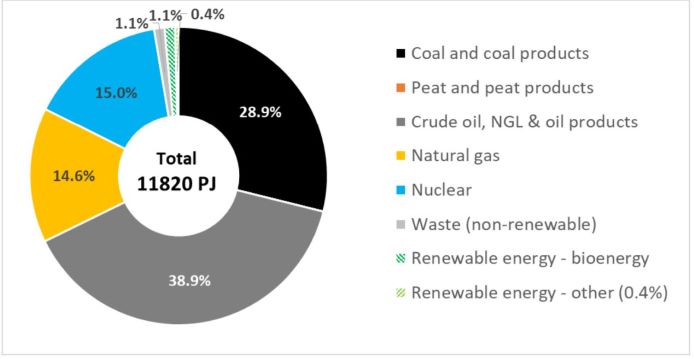South Korea Plans To Fire Up Renewables Replacing Coal Plants

In March the world’s fourth-largest importer of coal South Korea came under heavy public scrutiny after record levels of fine dust blanketed most of the country. Amid public anger, the government in designated pollution a “social disaster”.
Seoul introduced emergency measures, such as limiting vehicle use, curbing the use of coal-fired power stations and cutting the amount of dust generated by building sites and power plants. But they have had little success.
Then in April, South Korea pledged to boost renewable energy to up to 35% of total energy supplies by 2040 (from a previous 20% by 2030).
To meet the air quality standards and emission targets Seoul plans to accelerate targets for green energy in an updated 15-year energy plan later this year. The government looks set to close some 20 aging coal-fired generators and broaden operating caps. This was a shift from an earlier decision to retrofit such 20 coal plants with anti-pollution gear after 30 years of operation.
South Korea’s 2019 energy plan is expected to reflect the push for even more renewables and more gas-fired power at the expense of coal, imported from countries such as Indonesia, Australia and Russia.

The crisis has also created friction with China, which South Korean public health experts say is responsible for between 50% and 70% of fine dust pollution in the Seoul area, home to almost half the country’s population.
The Peninsular country operates some 60 coal power plants, mainly owned by state-run utilities, which last year supplied more than 40% of the country’s electricity.
Coal imports have fallen nearly 9% in the first four months of 2019 when coal’s share of the country’s energy mix fell by more than 5 percentage points to around 37%, although most of the slack was taken up by nuclear, rather than renewables. However, the change comes even as seven new coal-fired plants are set for completion by 2022.
South Korea still has to meet its emission targets. The country scores poorly so far to tackle climate change, with the independent Climate Change Performance Index released at last year’s climate talks in Poland putting it 58th out of 60 countries that were rated.
Consultants Wood Mackenzie said South Korea was also likely to miss its existing renewables target of 20% by 2030, more likely reaching about 17%. To meet its targets, South Korea would have to cut coal’s contribution to its energy mix by 10 percentage points, or about a quarter, and replace it with other sources like renewable energy.




